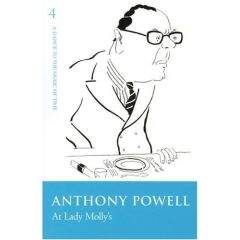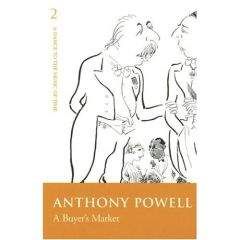Anthony Trollope - Autobiography of Anthony Trollope
nourished myself, and for which I have been thankful.
CHAPTER XV "THE LAST CHRONICLE OF BARSET"--"LEAVING THE POST OFFICE"--"ST. PAUL'S MAGAZINE"
I will now go back to the year 1867, in which I was still living at
Waltham Cross. I had some time since bought the house there which
I had at first hired, and added rooms to it, and made it for our
purposes very comfortable. It was, however, a rickety old place,
requiring much repair, and occasionally not as weathertight as it
should be. We had a domain there sufficient for the cows, and for
the making of our butter and hay. For strawberries, asparagus, green
peas, out-of-door peaches, for roses especially, and such everyday
luxuries, no place was ever more excellent. It was only twelve
miles from London, and admitted therefore of frequent intercourse
with the metropolis. It was also near enough to the Roothing country
for hunting purposes. No doubt the Shoreditch Station, by which it
had to be reached, had its drawbacks. My average distance also to
the Essex meets was twenty miles. But the place combined as much
or more than I had a right to expect. It was within my own postal
district, and had, upon the whole, been well chosen.
The work that I did during the twelve years that I remained there,
from 1859 to 1871, was certainly very great. I feel confident that
in amount no other writer contributed so much during that time to
English literature. Over and above my novels, I wrote political
articles, critical, social, and sporting articles, for periodicals,
without number. I did the work of a surveyor of the General Post
Office, and so did it as to give the authorities of the department
no slightest pretext for fault-finding. I hunted always at least
twice a week. I was frequent in the whist-room at the Garrick. I
lived much in society in London, and was made happy by the presence
of many friends at Waltham Cross. In addition to this we always
spent six weeks at least out of England. Few men, I think, ever lived
a fuller life. And I attribute the power of doing this altogether
to the virtue of early hours. It was my practice to be at my table
every morning at 5.30 A. M.; and it was also my practice to allow
myself no mercy. An old groom, whose business it was to call me,
and to whom I paid (pounds)5 a year extra for the duty, allowed himself no
mercy. During all those years at Waltham Cross he was never once
late with the coffee which it was his duty to bring me. I do not
know that I ought not to feel that I owe more to him than to any
one else for the success I have had. By beginning at that hour I
could complete my literary work before I dressed for breakfast.
All those I think who have lived as literary men,--working daily
as literary labourers,--will agree with me that three hours a day
will produce as much as a man ought to write. But then he should
so have trained himself that he shall be able to work continuously
during those three hours,--so have tutored his mind that it shall
not be necessary for him to sit nibbling his pen, and gazing at the
wall before him, till he shall have found the words with which he
wants to express his ideas. It had at this time become my custom,--and
it still is my custom, though of late I have become a little lenient
to myself,--to write with my watch before me, and to require from
myself 250 words every quarter of an hour. I have found that the 250
words have been forthcoming as regularly as my watch went. But my
three hours were not devoted entirely to writing. I always began
my task by reading the work of the day before, an operation which
would take me half an hour, and which consisted chiefly in weighing
with my ear the sound of the words and phrases. I would strongly
recommend this practice to all tyros in writing. That their work
should be read after it has been written is a matter of course,--that
it should be read twice at least before it goes to the printers,
I take to be a matter of course. But by reading what he has last
written, just before he recommences his task, the writer will catch
the tone and spirit of what he is then saying, and will avoid the
fault of seeming to be unlike himself. This division of time allowed
me to produce over ten pages of an ordinary novel volume a day,
and if kept up through ten months, would have given as its results
three novels of three volumes each in the year;--the precise amount
which so greatly acerbated the publisher in Paternoster Row, and which
must at any rate be felt to be quite as much as the novel-readers
of the world can want from the hands of one man.
I have never written three novels in a year, but by following the
plan above described I have written more than as much as three
volumes; and by adhering to it over a course of years, I have been
enabled to have always on hand,--for some time back now,--one or
two or even three unpublished novels in my desk beside me. Were I
to die now there are three such besides The Prime Minister, half
of which has only yet been issued. One of these has been six years
finished, and has never seen the light since it was first tied up
in the wrapper which now contains it. I look forward with some grim
pleasantry to its publication after another period of six years,
and to the declaration of the critics that it has been the work of
a period of life at which the power of writing novels had passed
from me. Not improbably, however, these pages may be printed first.
In 1866 and 1867 The Last Chronicle of Barset was brought out by
George Smith in sixpenny monthly numbers. I do not know that this
mode of publication had been tried before, or that it answered very
well on this occasion. Indeed the shilling magazines had interfered
greatly with the success of novels published in numbers without
other accompanying matter. The public finding that so much might
be had for a shilling, in which a portion of one or more novels was
always included, were unwilling to spend their money on the novel
alone. Feeling that this certainly had become the case in reference
to novels published in shilling numbers, Mr. Smith and I determined
to make the experiment with sixpenny parts. As he paid me (pounds)3000
for the use of my MS., the loss, if any, did not fall upon me. If
I remember right the enterprise was not altogether successful.
Taking it as a whole, I regard this as the best novel I have
written. I was never quite satisfied with the development of the
plot, which consisted in the loss of a cheque, of a charge made
against a clergyman for stealing it, and of absolute uncertainty
on the part of the clergyman himself as to the manner in which the
cheque had found its way into his hands. I cannot quite make myself
believe that even such a man as Mr. Crawley could have forgotten
how he got it, nor would the generous friend who was anxious to
supply his wants have supplied them by tendering the cheque of a
third person. Such fault I acknowledge,--acknowledging at the same
time that I have never been capable of constructing with complete
success the intricacies of a plot that required to be unravelled.
But while confessing so much, I claim to have portrayed the mind
of the unfortunate man with great accuracy and great delicacy. The
pride, the humility, the manliness, the weakness, the conscientious
rectitude and bitter prejudices of Mr. Crawley were, I feel, true
to nature and well described. The surroundings too are good. Mrs.
Proudie at the palace is a real woman; and the poor old dean dying
at the deanery is also real. The archdeacon in his victory is very
real. There is a true savour of English country life all through
the book. It was with many misgivings that I killed my old friend
Mrs. Proudie. I could not, I think, have done it, but for a resolution
taken and declared under circumstances of great momentary pressure.
It was thus that it came about. I was sitting one morning at work
upon the novel at the end of the long drawing-room of the Athenaeum
Club,--as was then my wont when I had slept the previous night in
London. As I was there, two clergymen, each with a magazine in his
hand, seated themselves, one on one side of the fire and one on
the other, close to me. They soon began to abuse what they were
reading, and each was reading some part of some novel of mine. The
gravamen of their complaint lay in the fact that I reintroduced
the same characters so often! "Here," said one, "is that archdeacon
whom we have had in every novel he has ever written." "And here,"
said the other, "is the old duke whom he has talked about till
everybody is tired of him. If I could not invent new characters, I
would not write novels at all." Then one of them fell foul of Mrs.
Proudie. It was impossible for me not to hear their words, and
almost impossible to hear them and be quiet. I got up, and standing
between them, I acknowledged myself to be the culprit. "As to Mrs.
Proudie," I said, "I will go home and kill her before the week is
over." And so I did. The two gentlemen were utterly confounded,
and one of them begged me to forget his frivolous observations.
I have sometimes regretted the deed, so great was my delight in
writing about Mrs. Proudie, so thorough was my knowledge of all the
shades of her character. It was not only that she was a tyrant,
a bully, a would-be priestess, a very vulgar woman, and one who
would send headlong to the nethermost pit all who disagreed with
her; but that at the same time she was conscientious, by no means
a hypocrite, really believing in the brimstone which she threatened,
and anxious to save the souls around her from its horrors. And as
her tyranny increased so did the bitterness of the moments of her
repentance increase, in that she knew herself to be a tyrant,--till
that bitterness killed her. Since her time others have grown up
equally dear to me,--Lady Glencora and her husband, for instance;
but I have never dissevered myself from Mrs. Proudie, and still
live much in company with her ghost.
I have in a previous chapter said how I wrote Can You Forgive Her?
after the plot of a play which had been rejected,--which play had
been called The Noble Jilt. Some year or two after the completion
of The Last Chronicle, I was asked by the manager of a theatre to
prepare a piece for his stage, and I did so, taking the plot of




